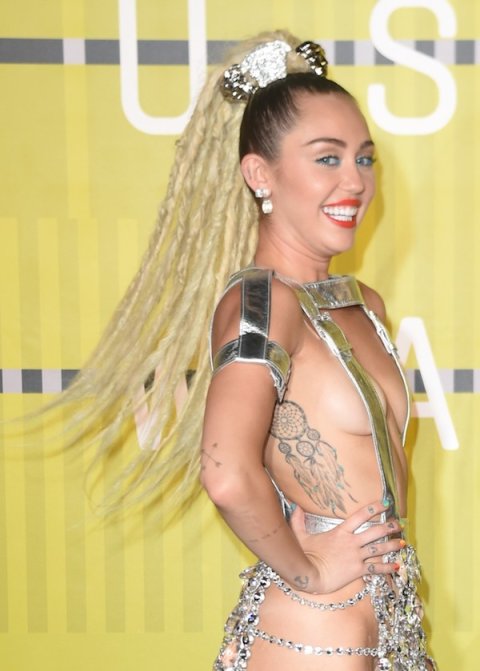
SANNA VARGAS
Copy Editor
vargassi@plu.edu
Editor’s note: For the sake of the argument, Sanna is identifiying as a white, female feminists.
Recently, Miley Cyrus has served as a host of both the MTV Video Music Awards and Saturday Night Live. During her times as host, she has continued to surprise and intrigue us all with her wacky, revealing costumes and brand new dreadlocks. The debut of her new look was definitely shocking, but not in the way Miley intended it to be.
As a disclaimer, I am a white, female feminist. Wait, before any of you stop reading, I want to express my belief that everyone, regardless of group memberships, should reserve the right to dress how they please as long as their choice does no harm to other people. For instance, if Miley decided to show up on stage ass-out, wearing nothing but a cowboy hat, I would support her choice.
With this in mind, I want to address what was truly shocking about Miley’s appearance at the VMAs and on SNL. It was not her wild, off-the-beaten-path antics nor her revealing outfit choices with which Miley intended to shock audiences that brought me to address her behavior. It was the negative impact of her choices, and her failure to recognize it, that I found to be outrageous.
With every choice comes a repercussion, and I was abhorred to see that Miley failed to anticipate the harmful consequences of her choice to wear and appropriate dreadlocks, which have a deep, significant history within black culture.
Cultural appropriation, a phrase which seems to be gaining more traction in popular culture, is when groups that hold privilege adopt cultural elements from an oppressed group of people. The Diversity Center’s Rieke Fellow for Intergroup Dialogue Maria Cruse explains it simply as, “taking something away from somebody without permission so that permission is … a key aspect of it.”
Miley has set a precedence of culturally appropriating and exploiting oppressed people for the sake of her on-screen appearance. She is guilty on multiple offenses for sexualizing black bodies in her music videos, using black slang, having a dream catcher tattoo (which appropriates Native American culture) as well as perpetuating other equally offensive behaviors.
With the addition of her dreadlocks, Miley takes on a whole new level of ignorance. Her hairstyle is harmful and ignorant because it’s not fair for people of color who choose to wear non-chemically altered hairstyles, like dreadlocks, and are discriminated against because of their choice. For example, in March of 2014, the U.S. military prohibited soldiers from wearing dreadlocks, twists, afros and other natural hairstyles. After receiving an uprising of adverse responses to the new regulations, the Army, Air Force and Navy have since authorized twists, although the natural hairstyle is still highly regulated. Dreadlocks and afros remain unauthorized.
As a privileged, white celebrity who has a larger opportunity than most to influence others, Miley has a great responsibility to recognize her place of privilege and use it to combat racial inequalities as opposed to contributing to them. Although she may not intend to cause harm, Miley must realize that regardless of intent, her actions still have a negative impact.
In a similar way, I encourage all others, especially those in my Pacific Lutheran University community, to recognize the impact of their actions, regardless of their intent. Fortunately, cultural appropriation, as well as other contributions to racial inequalities, can be prevented.
Miley should understand the history behind the appearances she adopts from other cultures before deciding whether to display them. If upon discovering that wearing a certain style may have a harmful impact on the culture from which it comes, I would advise her to find a new look. I welcome all members of the PLU community to adopt this method as well. “It’s everyone’s responsibility [to educate] … about issues like this because it affects all of us,” says Cruse.

















